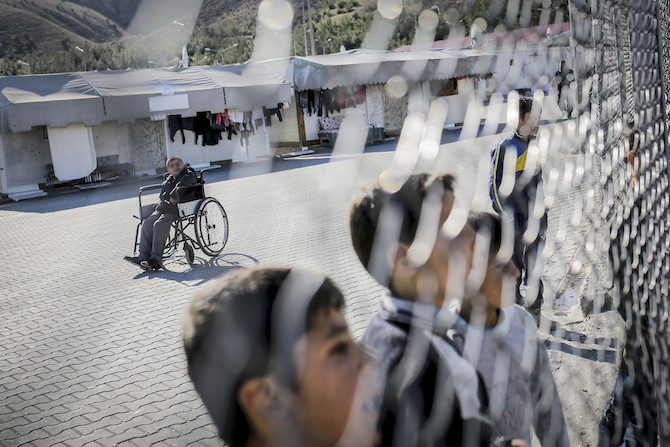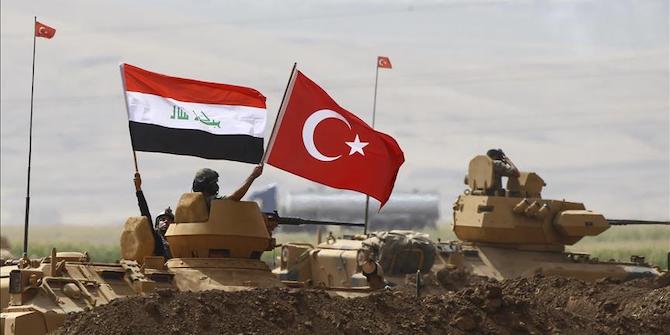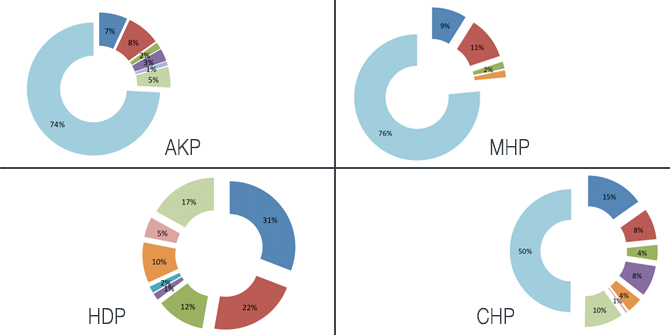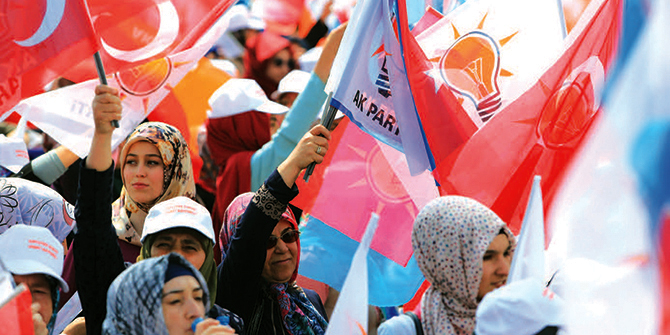by Suhail Ahmad Khan

After almost over a decade, on 28 December 2022, the intelligence chiefs and defence ministers of Türkiye, Syria and Russia met for the first time in Moscow. Since the start of the civil war in 2011, the Assad regime, backed by Russia, has been at odds with the Turkish government led by the Justice and Development Party (AKP). Thus, high-level talks between Syrian and Turkish officials surprised many observers and grabbed the media’s attention. At the heart of this rapprochement are the upcoming Turkish general elections and the related issue of Syrian refugees. Any rapprochement with Syria in the near future would drastically impact the Syrian refugees of Türkiye.
There are multiple players in the Syrian civil war. Of course, there is the Assad regime which, with support from Iran and Russia, is preserving power. The United States (US) is in an alliance with the Syrian Democratic Forces (SDF) to fight against the Islamic State (IS). And then there is Türkiye, whose foreign policy objectives in Syria have changed drastically over time. At the beginning of the war, it wanted to secure a place for the Syrian Muslim Brotherhood in the Assad regime. After failing to do so, its objective shifted to overthrowing the regime by backing the disparate Syrian rebel groups. This objective also seemed impossible to achieve primarily because the disorganised rebel groups could not effectively counterweight the Assad forces.
Since 2016, by aligning with secular (Syrian Nation Army), pro-Turkish Islamist nationalists (National Liberation Army) and other Islamist groups (He’yat Tahrir Al-Sham), the aim of Türkiye has been clear: to contain any territorial and political gains of the Syrian Kurdish Democratic Union Party (PYD) and its military wing, the People’s Protection Units (YPG) in Syria, particularly along Türkiye’s southern borders. The containment of PYD and YPG is essential, given that they have ties with the Kurdish Worker’s Party (PKK), a Kurdish armed group whose demands range from an independent Kurdish state to increased autonomy within Türkiye.
The Politics of Rapprochement
The signs of rapprochement between Türkiye and Syria can, in part, be attributed to the political necessities of the incumbent president, Recep Tayyip Erdogan. Since coming to power in 2002, the Justice and Development Party (AKP) is set to face one of the most challenging political battles in the upcoming elections in May/June 2023. In part, Erdogan himself, through his unconventional economic policies, which have led to higher inflation levels, has given a chance of resurgence to his political rivals. Moreover, amid the debilitating economic conditions, the Turkish people have quickly pointed out that 3.5 million Syrian refugees are further straining the economy, and 59% of them support the decision that there should be talks with the Assad regime so that the refugees could be repatriated.
Türkiye’s main opposition party, the Republican People’s Party (CHP), has declared the normalisation of ties with the Assad regime and the return of Syrian refugees as one of its main agendas for the upcoming elections, which has quite resoundingly resonated with the Turkish population. In such circumstances, Erdogan and his party is treading carefully, reaching out to Bashar al-Assad and signalling to the people that they, too, are ready to resolve the ‘refugee crisis’. These political manoeuvres are aimed at preserving power in domestic politics. On the foreign policy front, Erdogan wants to use the support of the Assad regime and Russia to keep the PYD and YPG in check. Overall, Erdogan aims to achieve domestic and foreign policy objectives by realigning relations with the Assad regime.
The Refugee Question
The issue of refugees has prominently figured in Turkish domestic politics. To some extent, the simmering tensions between Syrians and Turks also influenced the 2019 municipal elections in Türkiye, when the AKP faced an electoral setback in big cities. Since these elections, there have been increasing tensions between the Turks and Syrians, which have led to sporadic attacks against the latter. The attack on Syrians in 2021 in Ankara was representative of this growing hostility towards refugees. And this hostility could further increase after a Syrian woman carried out a blast in Istanbul on 13 November 2022.
Erdogan understands the impulses of the Turkish population, which is why Turkish authorities have been forcibly trying to send the refugees back to Syria. The Human Rights Watch reported in 2022 that ‘Turkish authorities arbitrarily arrested, detained, and deported hundreds of Syrian refugee men and boys to Syria between February and July 2022’. These deportations are grave violations of the principle of nonrefoulment, which prohibits the return of anyone to a country where they face a threat of persecution and torture. The deported Syrian refugees still face the threat of persecution in their home country at the hands of the Assad regime.
However, for major political parties in Türkiye, the fate of Syrian refugees is less important than winning the upcoming general elections. In such circumstances, the report that the Erdogan government is ready to withdraw its support to three main rebel groups should not come as a surprise. The withdrawal of support to rebel forces poses two problems. First, the rebel groups would not be able to resist the Assad regime’s attacks in rebel-controlled territories of northern Syria. Second, many refugees who voluntarily or otherwise have returned to Syria till now have preferred to live in rebel strongholds. In case of a military offensive from Assad forces, these rebel strongholds may fall under the regime’s control. The deported Syrian refugees may have to live again under the brutal rule of Bashar Al-Assad, from which they had fled.
The repatriation of Syrian refugees is a long and drawn-out process. It should follow when a political solution is brought to Syria, either through the UN-sponsored Geneva Process or the Astana Peace Process. Any hasty promises or decisions by Turkish leaders to deport Syrian refugees for electoral gains would put them at further risk of persecution and violence.
[To read more on this and everything Middle East, the LSE Middle East Centre Library is now open for browsing and borrowing for LSE students and staff. For more information, please visit the MEC Library page.]






